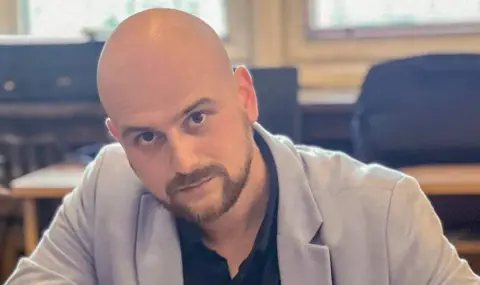Early elections, not a rotation of the “assembly” . In Bulgaria, the official office "Glavchev" operates, and the main topic is what is happening in the Ministry of Internal Affairs. What didn't happen… Svetlin Tachev, a political scientist from the Gallup agency and an assistant at the Institute of Philosophy and Sociology at the BAS, spoke to FAKTI.
- Mr. Tachev, why didn't we have a rotation, and today we are managed by the “Glavchev“ cabinet. Time has passed since the talks between GERB-SDS and PP-DB. What did not happen in them?
- The talks did not happen because everyone had their own interests. GERB-SDS found that this was the better option for them and took advantage in the best possible way to be able to position themselves better in some early elections.
After that, it was seen that the changes in the Constitution, which were initiated by the PP-DB, were a premature baby.
And GERB-SDS took maximum advantage of them. This opens up a topic about democracy in Bulgaria, about the crisis of democracy, about changes to improve its quality. The idea is to do this in such a way that there is an upgrade, not a crippling with conjunctural incentives of its toolkit – as it happened, because we are currently seeing the consequences. And we have seen this more than once. For example, fully machine voting was introduced with the idea of streamlining the electoral process, and then it was eliminated. This is what I describe in my book “The New Transition: How Protests Change Democracy”. The crisis of democracy in Bulgaria has been around since 2013, and overcoming it must go through its improvement through innovations that benefit the citizens. Today, we see the crisis of democracy in even greater dimensions. In them, the opposition between political formations leads to a state in which the political system can hardly function in the future.
- At the moment, we are seeing an opposition of political formations, and the emphasis is on the battle for the Ministry of the Interior. The battle for the Ministry of Internal Affairs turned out to be more than serious. Who is who in the Ministry of Interior? Did you understand what the Minister wanted and what the Chief Secretary should do?
- Look, this is an episode of the pre-election battle that has started and which aims to show us how the formations will position themselves before and after the elections. It is probably also about the holding of the elections itself. It can be seen that GERB-SDS takes advantage of every situation against its political opponents to position themselves in such a way as to achieve better results in the elections, respectively to put others in a less favorable position for negotiations after the elections - especially PP- DB. Borisov himself said that it is not possible with DPS alone, and this is important from the point of view of the orientation of the political formations, how they will present themselves to our Western partners.
- In a study by “Gallup“ you give about 10% difference between GERB-SDS and PP-DB… Will this difference persist?
- These 10% are now a snapshot of electoral attitudes, but on the days of the survey. It is important to note that the study does not cover the recent scandals surrounding the Ministry of Internal Affairs and customs. So in a new study, these scandals are likely to play out and we'll be able to see what effect they have on voters' electronic attitudes, where things are going. This situation is most likely to have an impact on people. Keep in mind that the election battles are just beginning and there is plenty of time in which the electoral data will really change.
- We see a new formation “Blue Bulgaria” which has been created in the right space, and the BSP is also looking for unification in the left… Can the emergence of new players change the picture dramatically?
- In my opinion, no, because there is no new big political player to appear on the political scene. Over the years, we have observed that an increase in voter turnout occurs when a new major political entity really enters the field, which can capture both the protest vote and gather support from a wider range of voters. In this case, we are talking about a formation or formations that are ideologically oriented in certain political niches. Not to mention that the problems facing the BSP are big because they have no unity with the “Left”.
BSP has been in a process of disintegration for years and whatever unification is done, the problems are so big that it is very difficult to do anything to go in the opposite direction.
The fact that the BSP did not invite the “Left” shows how great the fragmentation of the left political space is. And there the processes continue and can be very difficult to recover. Otherwise, by a big player I understand one who can enter the political field and change the electoral picture drastically, but at the moment, such a thing is not observed.
- Choices “2 in 1“ – will we hear anything at all about EU developments in the campaign?
- The European elections in Bulgaria are not particularly interesting for Bulgarian citizens, and this has been seen over the years, because they register a low voter turnout. In Europe, interest is currently very high from the point of view that there is an opportunity for populists to gain momentum in the European Parliament. In Bulgaria, internal struggles, internal party talk will be in the foreground, and in this case the European topic will remain behind. But elections “2 in 1“ make it possible for voter turnout to rise at least a little.
